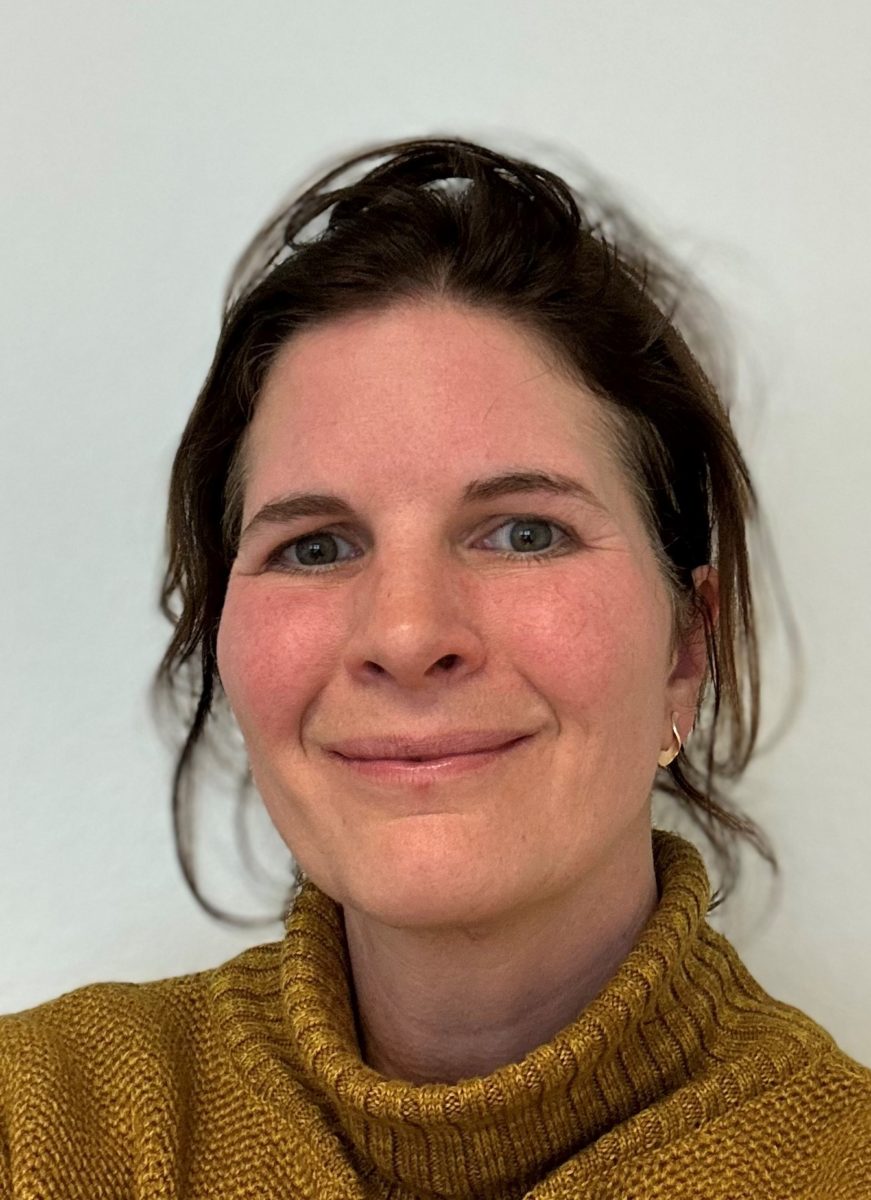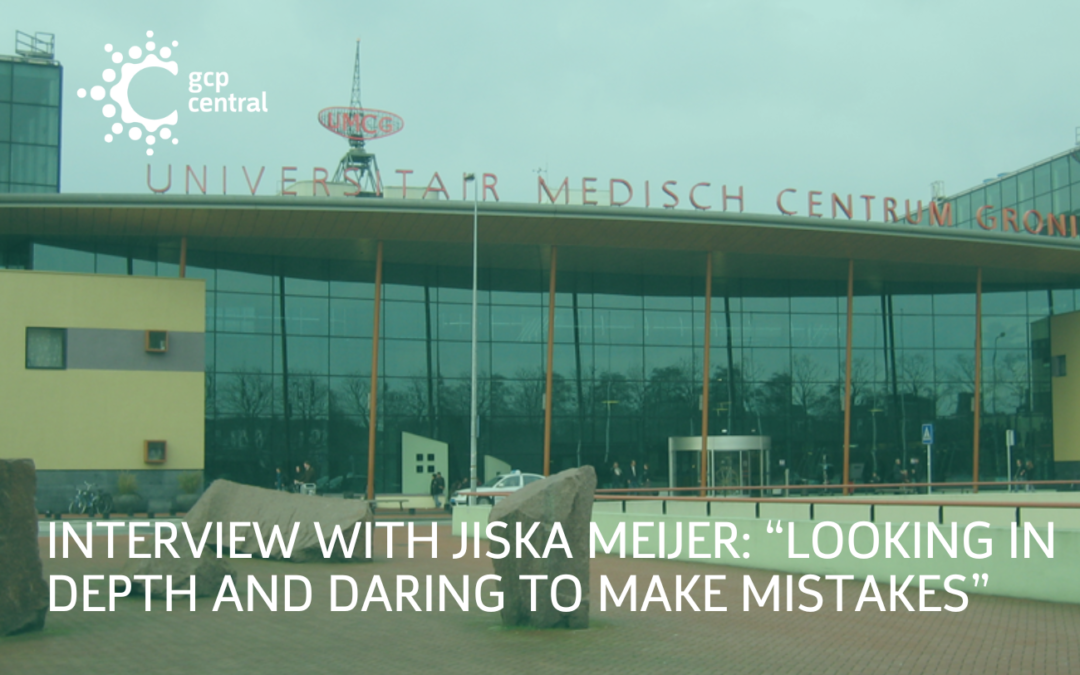GCP Central has been around for more than ten years. A time when we have put all our energy, passion and dedication into training the international community of medical scientific researchers in the field of good clinical practice, or GCP. So that scientific research proceeds per the applicable laws and regulations. For a smooth run from start to finish. And, of course, for the safety of participants and patients.
We develop the training courses for our customers, for you. We continuously show what we do, what changes and where we are going. But how do you experience our training? What is your motivation for doing research? How do you look at the laws and regulations? Is there resistance? Is the training practical? Is the knowledge gained applicable?
In this interview series, we portray people working in clinical research. In this way we learn from your experiences, but someone else’s story may also inspire you. We visit different research groups, different hospitals and people with varying roles within the world of science. In this series, we interviewed neurologist Anne van der Plas and research coordinator Manon Haanepen.

The third person to speak in this series is Jiska Meijer, a general practitioner with a PhD, co-founder of GPRI and deputy head of general practitioner training at the UMCG since the beginning of this year. One day a week, she works as a general practitioner, one and a half days she has for the position of deputy head and the rest of the time, she goes to her General Practitioners Research Institute (GPRI). The mission of GPRI is that the guidelines for primary care are based on research in patients in primary care. Research you conduct in a hospital population cannot be translated one-on-one to the primary care population, according to Jiska. And so GPRI facilitates research that is carried out from general practice (also called primary care).
Jiska is a passionate researcher who likes to look in depth to do the actual thinking. After studying medicine, she combines a PhD with dentistry and then moves on to training to become an oral surgeon. The PhD time is very instructive, both in the field of research and in the field of collaboration. “If you’re doing two full-time projects simultaneously, everyone wants you to be everywhere.” To manage that well, she learned a lot from that. She had to accept that not everyone was happy with her choices. But to achieve her end goals, she had to make those choices. Communicate and argue well, and above all, accept.
In the first year of her oral surgeon training, Jiska completes her PhD. In the years that follow, something begins to gnaw. The floor with the patient is missing during the outpatient days. A challenging but well-considered decision follows. Jiska says goodbye to the hospital and becomes a general practitioner. During her training as a general practitioner, she and her husband, Janwillem Kocks, went to New Zealand to do research. There they see a network of GP practices and how it facilitates research in primary care. The couple had experienced in the Netherlands how difficult it is to conduct research in primary care, but sees opportunities through this model.
And so, after returning to the Netherlands, they set up GPRI, together with health economist Evgeni Dvortsin. They start with 2-3 small studies, which they set up themselves. All study folders are made yourself, in the evening, at the kitchen table. After six months, the first people are hired. There is now more and more seniority in the team, with an increasing number of PhD researchers. They mainly carry out all the investigations. Janwillem directs, especially on the content of the projects. Jiska monitors the broad line, the vision and thinks along with the design of studies. And especially on the feasibility and that the end point of the study is kept in mind.
It suits Jiska perfectly that she completely immerses herself in which work culture they want to create. In establishing GPRI, they make mistakes and learn from them. If something doesn’t work, they try something else. “By trying more, you get to the best method.” And the more Jiska reads about this, the more she realizes that we don’t learn enough about it in medical school. “That it’s part of the occasional thing that doesn’t go well and that you learn from that.” Instead of it being awful that something is not going well, you are so limited that you no longer dare to try anything. You have to try to make progress. This applies to individual doctors, medical science, and GPRI itself. She encourages her team to innovate, to be innovative. “You have to do it differently than everyone else around you if you want to create something that adds value.” This way of thinking is embedded in GPRI’s vision.
And GPRI does it differently than everyone else; GPRI is unique in the Netherlands. Setting up studies in general practice. It’s not easy. “GP practices are separate islands, with a few thousand patients. If you’re looking for a specific population, you might only have five patients who meet your inclusion criteria.” You’re dealing with full, busy practices, which aren’t as used to doing research. “Before you know it, your patients will be gone.” It isn’t straightforward to participate as a separate island. GPRI tries to respond to this by making it as easy as possible for participating GPs. Jiska says: “What we can do, we do. We guide the entire process, including the explanation to patients. GPs can indicate how they would like to participate in the study. If they really want to do everything themselves, they can. But we can also take almost everything off your hands.”
All GP practices are GCP trained with the online training courses of GCP Central. Depending on how they participate, they do parts of the training. GPRI is very careful about this. Jiska notices that there is sometimes some resistance to all the forms that come with the laws and regulations. Her teams indicate that it takes a lot of time, but they also try to work more efficiently here. Jiska herself ensures that she remains up-to-date and certified. She likes the training at GCP Central, because she can go through it in her own time, because she can look for depth via the links and because you can quickly look for something back. In the meantime, she also looks at the training sessions through a different lens, more transcendent. She has the online and classroom training of GCP Central done by others, so in the meantime, she thinks along about how she can best use them. She pulls out what is helpful for her network to know
While discussing the training courses, we come to the topic of the MyGCP Powerapp. Jiska herself is enthusiastic about the concept; it is a method that suits her. But when asked if it’s something for GPs, she gives an appropriate answer: “I can’t say whether or not it will work for our network. But that’s not how we work either. I would try it out and get feedback and then I can say something about it.” It is typical of working and thinking of Jiska and GPRI and having a learning mindset, or even a growth mindset. That is something she also imparts in the education of her 4 children. They are allowed to make mistakes; they learn how to give feedback and deal with it. That feedback is not a criticism but that you can learn from it.
And so the results of scientific research are also a kind of feedback. Jiska will continue to deepen, will continue to dare to make mistakes and will go for the ambition she has with GPRI. And that is to eventually expand the research field to all aspects of primary care. With a vision and a strategy, to contribute to the improvement of healthcare.


